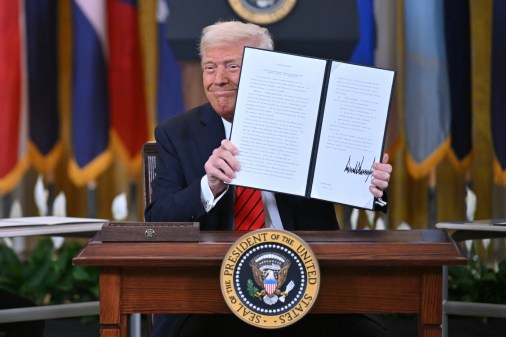GAO partially sustains bid protest over CIO-SP4 treatment of large business mentors

The Government Accountability Office has partially sustained a pre-award protest over the CIO-SP4 solicitation in which plaintiffs argued the procurement unfairly disadvantaged large companies in mentor-protégé arrangements.
In a decision Tuesday, the oversight body agreed that restrictions on the amount of evidence of prior experience that large companies are able to show are unfair and recommended that the National Institutes of Health Information Technology Acquisition and Assessment Center (NITAAC) either amend the solicitation or provide further justification for the requirements.
“[A]lthough the solicitation provision is not expressly prohibited by small business laws or regulations, the agency does not establish that the restriction is reasonable, and where the agency does not reasonably explain why mentor-protégé joint ventures with small business mentors are treated differently,” GAO said in its opinion.
The current CIO-SP4 solicitation restricts large companies in mentor-protégé arrangements from submitting more than two pieces of evidence in support of a bid.
GAO found that NITAAC did not provide a rationale for the decision and recommended that the agency should either reconsider the limitations or provide further justification to contractors.
The decision is the latest turn for the widely contested procurement that so far has been the subject of 21 pre-award bid protests with the GAO.
The bid protest was filed with GAO by Computer World Services Corporation (CWS) and CWS FMTI JV.
Although it agreed with the plaintiffs’ challenge that the solicitation limits experience examples for large businesses, GAO rejected two further complaints about the solicitation.
First, GAO rejected an argument that agencies are forbidden from making an improper responsibility determination based on the experience of a protégé member. GAO also rejected the contention that bidders were improperly required to submit information about the obligated value of prior contracts.
Mentor-protégé arrangements are an aspect of federal contracting regulations for small businesses overseen by the Small Business Administration, which are designed to foster innovation. They allow larger companies to work with smaller entities and to use their prior contract experience to vouch for junior firms taking part in a joint venture.
Speaking to FedScoop, Michelle Litteken, attorney for the plaintiffs, said NITAAC had failed to provide a good explanation for what it was trying to achieve with the specific restriction on the submission of evidence.
“I don’t think NITAAC took a step back before issuing the solicitation,” she said.
NITAAC could not immediately be reached for comment.
In September, FedScoop reported on concerns raised by sources over mentor-protégé requirements included in the CIO-SP4 solicitation.
At the time, industry sources expressed concern over lack of clarity about how a points-based evaluation system would be used to evaluate bids from companies in mentor-protégé requirements and at the time warned it could preclude some smaller companies from using the track record of mentor companies.
According to federal government estimates, the contract should be awarded by February 2022. Federal contracting sources have questioned this timeline.






